Abstract
The effects of a number of synthetic antibacterial agents of the borinic acid and diazaborine types on the growth of enteric bacteria were examined. In minimal medium aerobic growth was immediately slowed; slow nonexponential growth continued for an extended period, and the cells remained viable. The effect was also seen in anaerobic cultures and was not antagonized by a number of common nutrients, vitamins, or growth factors. The response was modified by the addition of casein hydrolysate to the medium. This seemed to be a nutritional effect dependent principally on lysine and leucine. The modified response consisted of a period of abnormal growth lasting for at least one doubling time after the addition of the antibacterial agent. The turbidity at first increased more rapidly than that of the controls and was approximately equal to that of the controls after 30 min. However, the increase in bacterial mass (dry weight) was only 0.75 of the amount predicted by the change in turbidity. The viable count increased in proportion to the turbidity. Changes in the cell envelope were revealed by electron microscopy and by an alteration in the response of cells to lytic agents. After the period of abnormal growth cultures entered a premature stationary phase.
Full text
PDF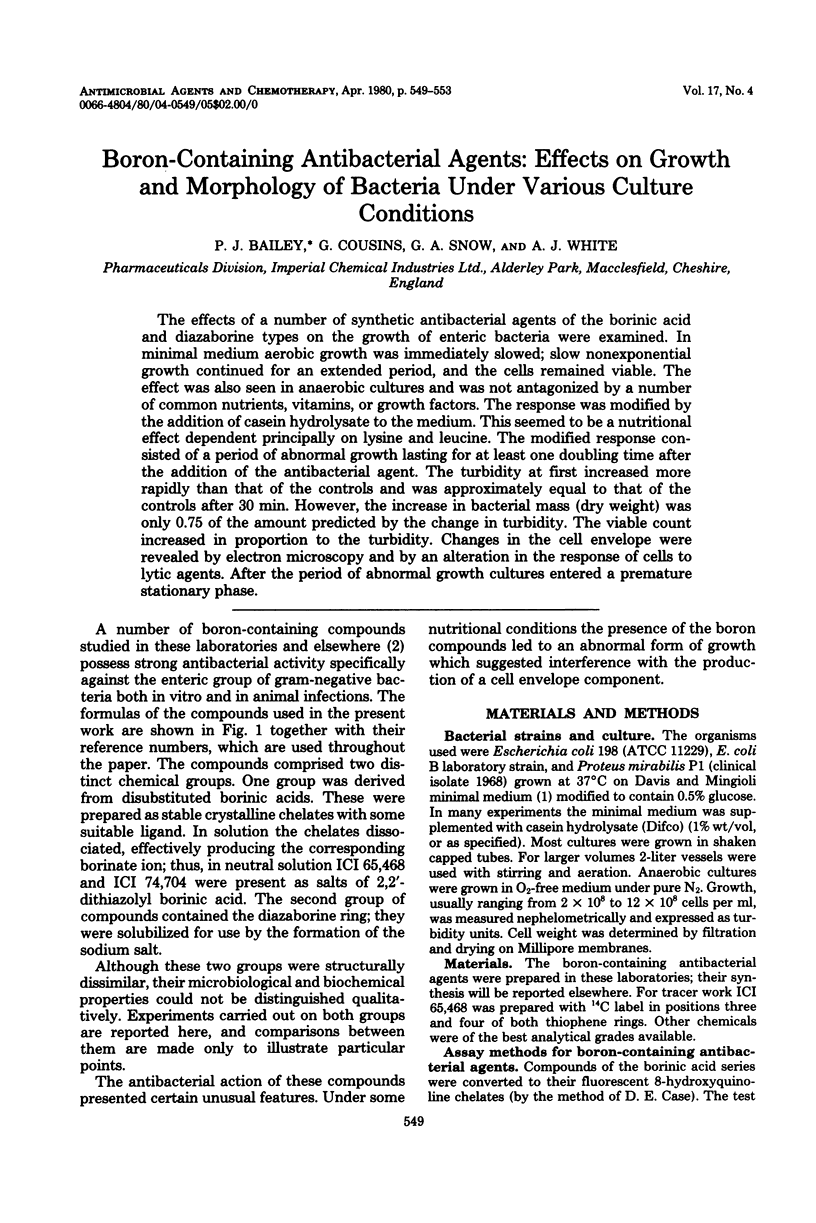
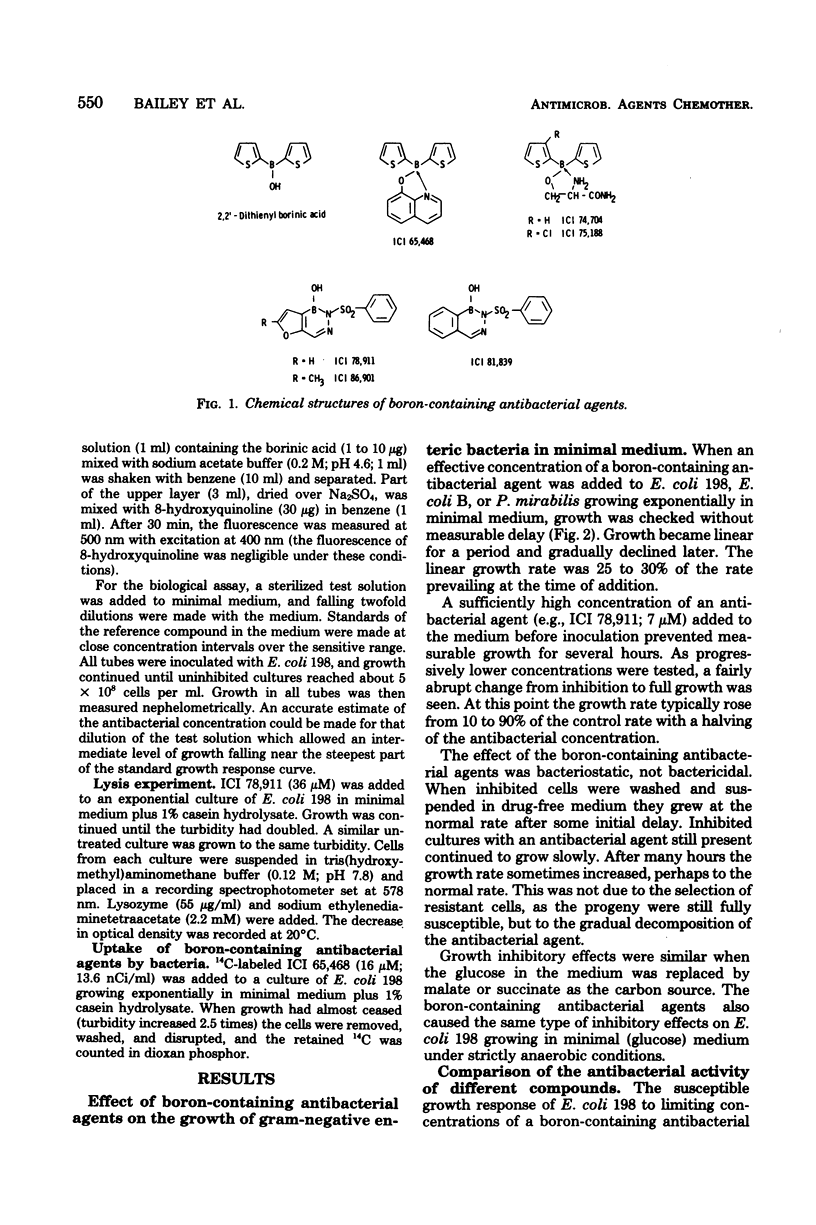
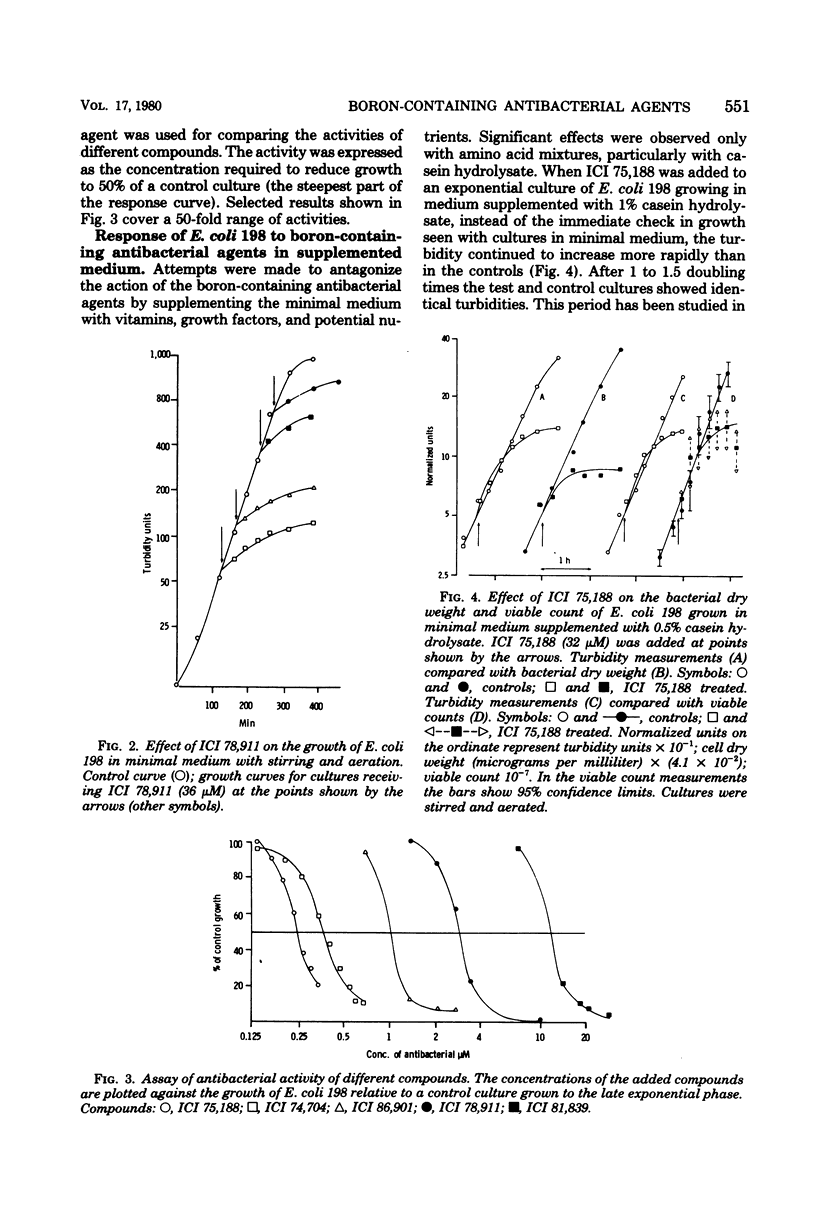
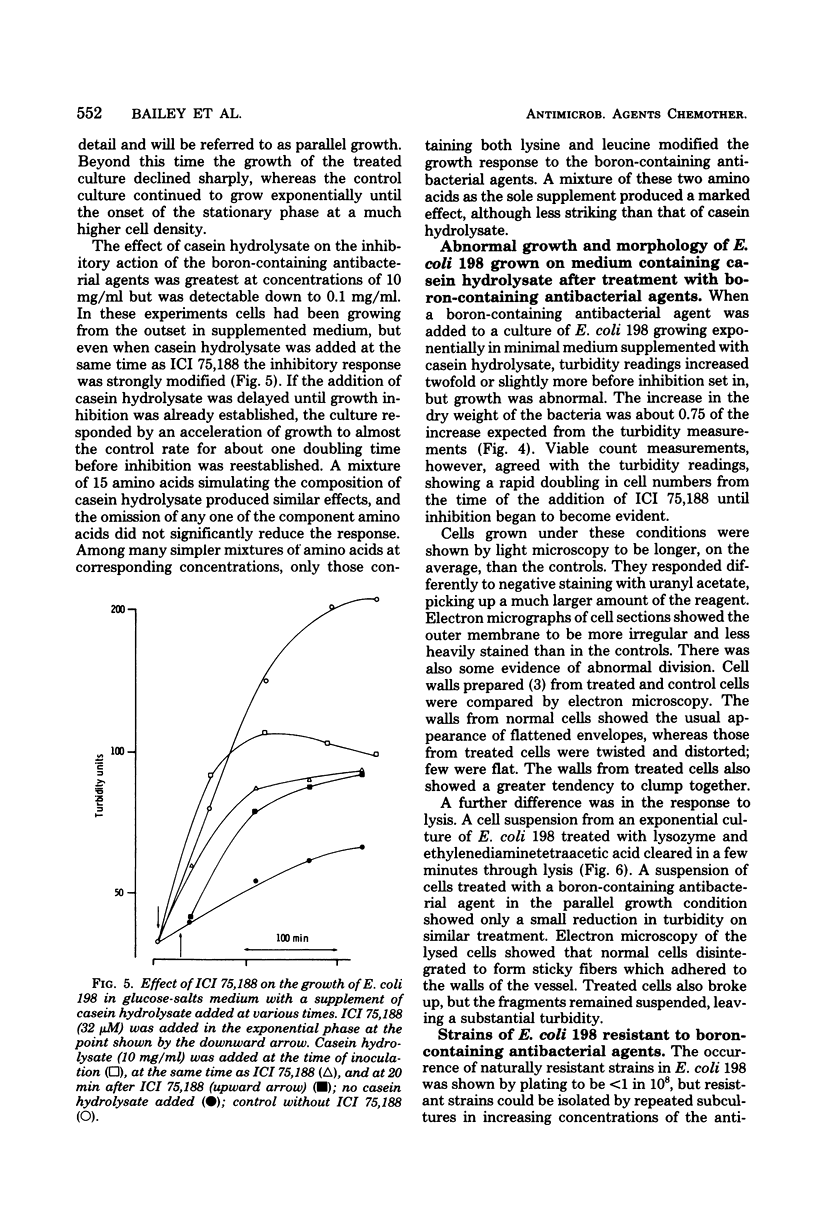
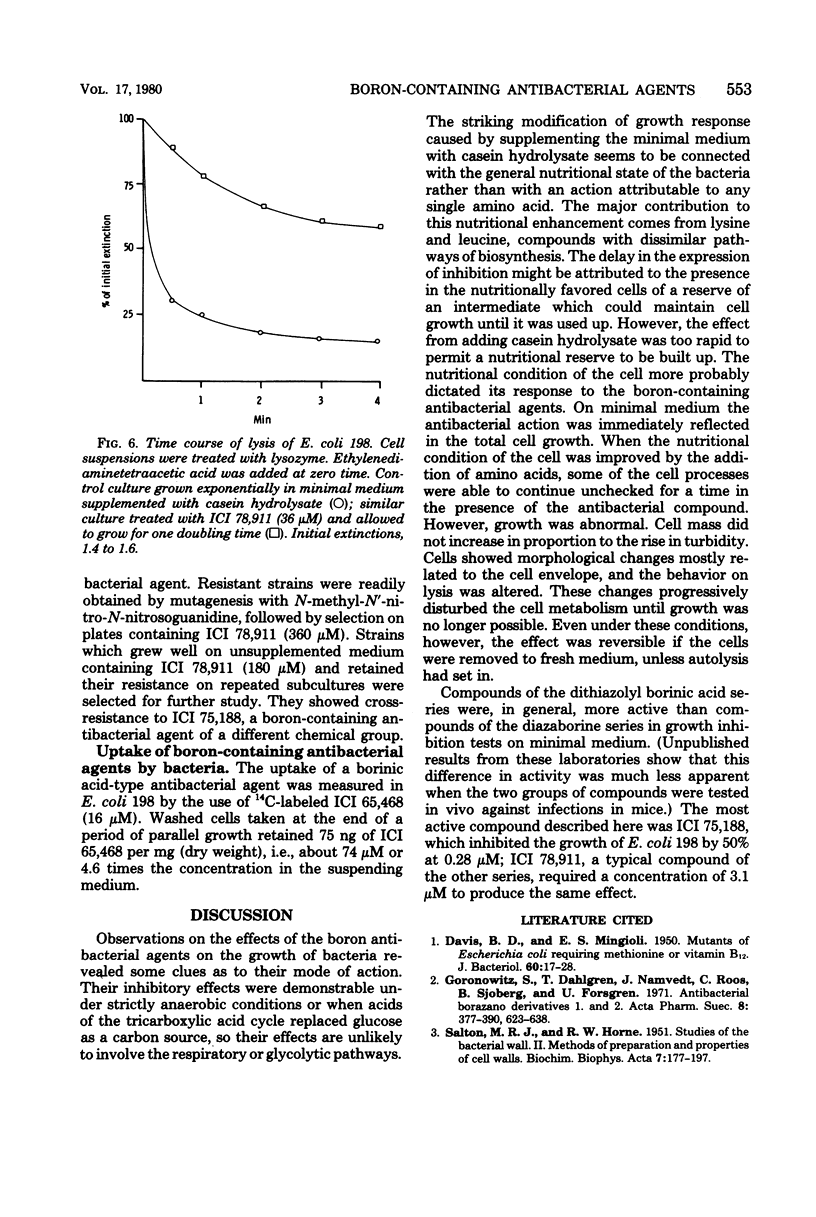
Selected References
These references are in PubMed. This may not be the complete list of references from this article.
- DAVIS B. D., MINGIOLI E. S. Mutants of Escherichia coli requiring methionine or vitamin B12. J Bacteriol. 1950 Jul;60(1):17–28. doi: 10.1128/jb.60.1.17-28.1950. [DOI] [PMC free article] [PubMed] [Google Scholar]
- Gronowitz S., Dahlgren T., Namtvedt J., Roos C., Rosén G., Sjöberg B., Forsgren U. Antibacterial borazaro derivatives. II. Effect of substituents on the antibacterial activity of 5-arylsulphonyl-4-hydroxy-4,5-borazarothieno(2,3-c)pyridines and 6-arylsulphonyl-7-hydroxy-7,6-borazarothieno(3,2-c)pyridines. Acta Pharm Suec. 1971 Dec;8(6):623–638. [PubMed] [Google Scholar]
- Gronowitz S., Dahlgren T., Namtvedt J., Roos C., Sjöberg B., Forsgren U. Antibacterial borazaro derivatives. I. 5-Arylsulphonyl-4-hydroxy-4,5-borazarothieno(2,3-c)pyridines and 6-arylsulphonyl-7-hydroxy-7,6-borazarothieno(3,2-c)pyridines. Acta Pharm Suec. 1971 Sep;8(4):377–390. [PubMed] [Google Scholar]
- SALTON M. R. J., HORNE R. W. Studies of the bacterial cell wall. II. Methods of preparation and some properties of cell walls. Biochim Biophys Acta. 1951 Jul;7(2):177–197. doi: 10.1016/0006-3002(51)90017-0. [DOI] [PubMed] [Google Scholar]


